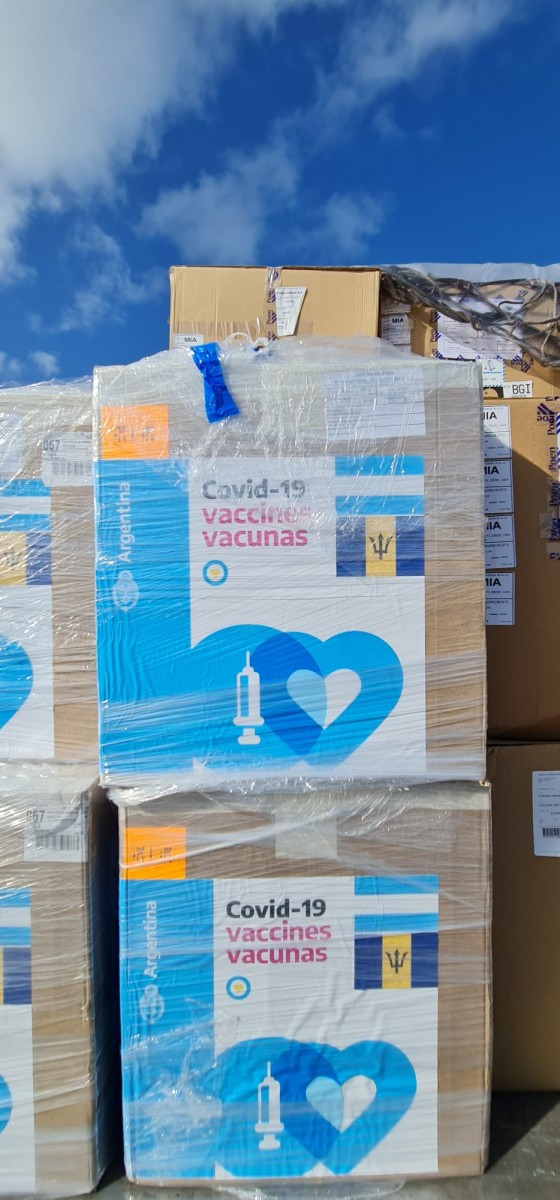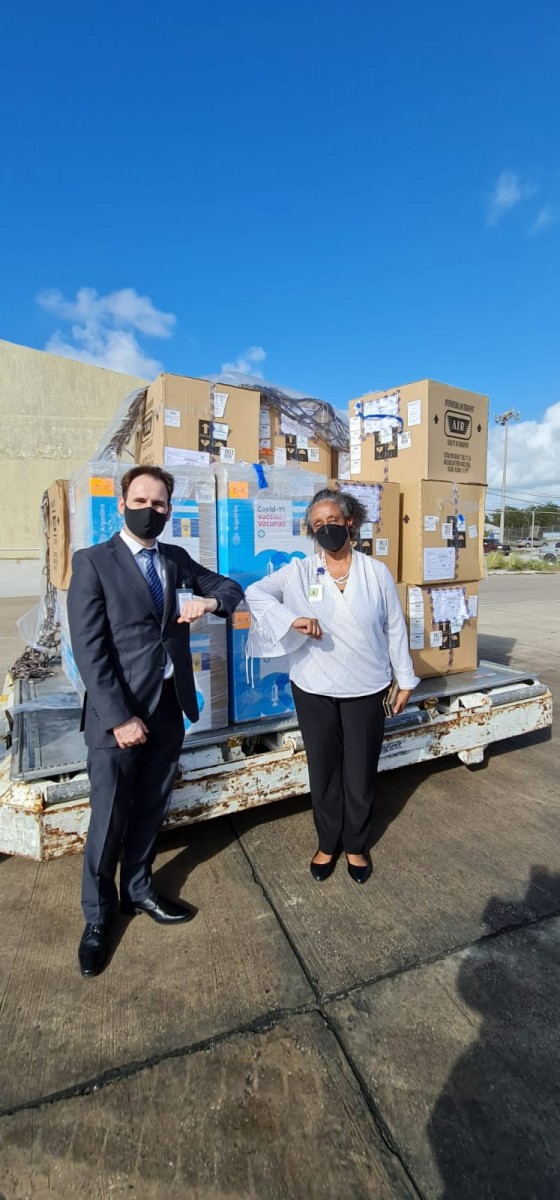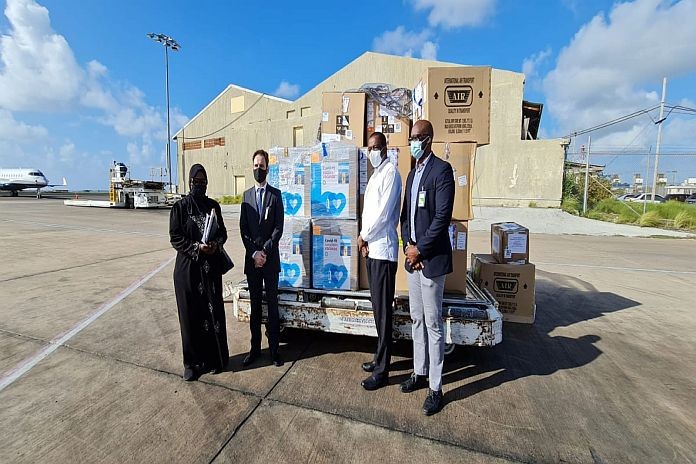By Embassy of Argentina in Barbados
BARBADOS / ARGENTINA – Argentina donated 30,000 COVID-19 vaccine doses to Barbados. The shipment arrived last Saturday, December 4 at 8:00 am at the Grantley Adams International Airport.
On hand to accept the donation were Charge d’Affaires Angel Dalmazzo, minister of health and wellness, Lieutenant Colonel Jeffrey Bostic; deputy chief medical officer, Dr Anton Best, and director of the drug service, Maryam Hinds.

According to the Charge d’Affaires Angel Dalmazzo, Argentina strongly believes that ”No country will be safe until all countries are safe” and actively participate in the global system of reciprocity constituted by the donation of vaccines to reduce the contagion and the effects of the global pandemic of Covid-19.
In addition to the 30,000 doses received by Barbados, donations of AstraZeneca vaccines have already been sent to Mozambique (450,000 doses), Vietnam (500,000 doses), Angola (350,000 doses), Grenada (11,000 doses), Saint Lucia (18,000 doses), Saint Vincent and the Grenadines (11,000 doses) and Dominica (2,000 doses).
According to Argentine foreign minister Santiago Cafiero, “this collaboration is just a token of the historical friendship and positive relations between the Argentine Republic and the Caribbean region. We share the same democratic values, and my government truly appreciates the support we permanently receive from our partners.”
The White Helmets Commission, chaired by Sabina Frederic, has begun negotiations for assistance and solidarity exchange of COVID-19 management experiences so that, as has been done at the global level, Argentina can respond positively and proactively to the international needs caused by the pandemic.
Dr Best said the ministry of health and wellness was grateful for the donation of the vaccines, which, he said, would help boost the efforts of the National Vaccination Programme for COVID-19.

“We’re approaching the one-year mark for the vaccination programme. For the initial months of the programme accessing vaccines was difficult; we really relied on the goodwill of countries to assist small island developing states, like Barbados.
“Thankfully, we’re no longer there in terms of vaccine supply. There is still a lot of global inequity where vaccines are concerned and we are grateful to the more developed countries for providing vaccines to small countries like Barbados because our leverage is not the same as theirs.”
The deputy chief medical officer added that vaccines were safe and effective and a lot more data was now available to prove this than when the National Vaccination Programme first started.
He pointed out that while there would continue to be persons who were vaccine-hesitant, the fact remained that vaccines were key to helping Barbados and the rest of the world out of the current pandemic.





